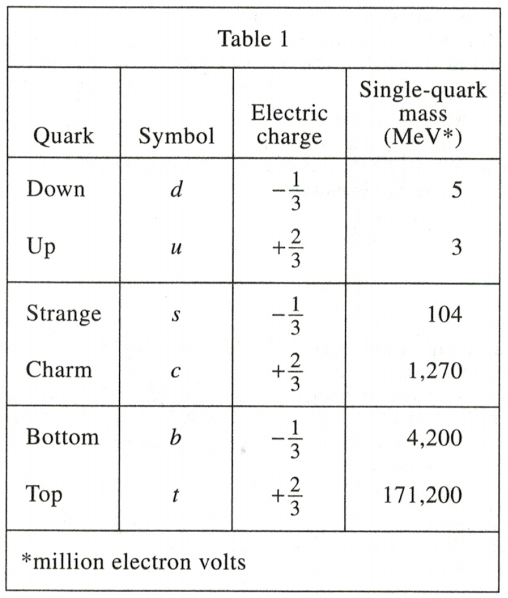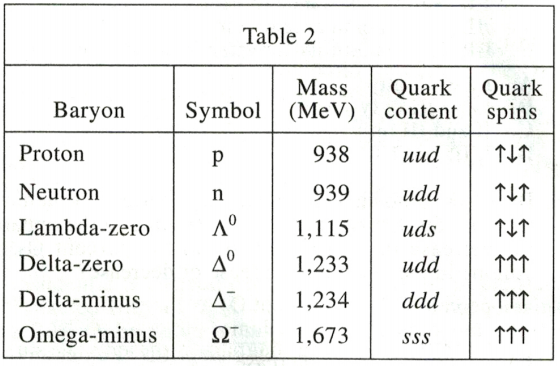35. For all quarks, the amount of spin is always , where
is a constant. A spin-up quark has spin
, and a spin-down quark has spin
. Given that the spin of a baryon equals the sum of its quark spins, what are the spins of the
and
baryons listed in Table 2 ?
Your Answer is
Correct Answer is C
Explanation
According to the stem of the question, the spins of a baryon are equal to the sum of its quark spins.
Find Λ0 in table 2, and see that it has two upward quarks and one downward quark, so its spin sum is two (+1/ 2h) and one (-1/2h), the sum is equal to (+1/2h);
Similarly, the spin of Δ0 can be found, see table 2 is three quarks on phase, so it is three (+1/2h) added, equal to (+3/2h)

